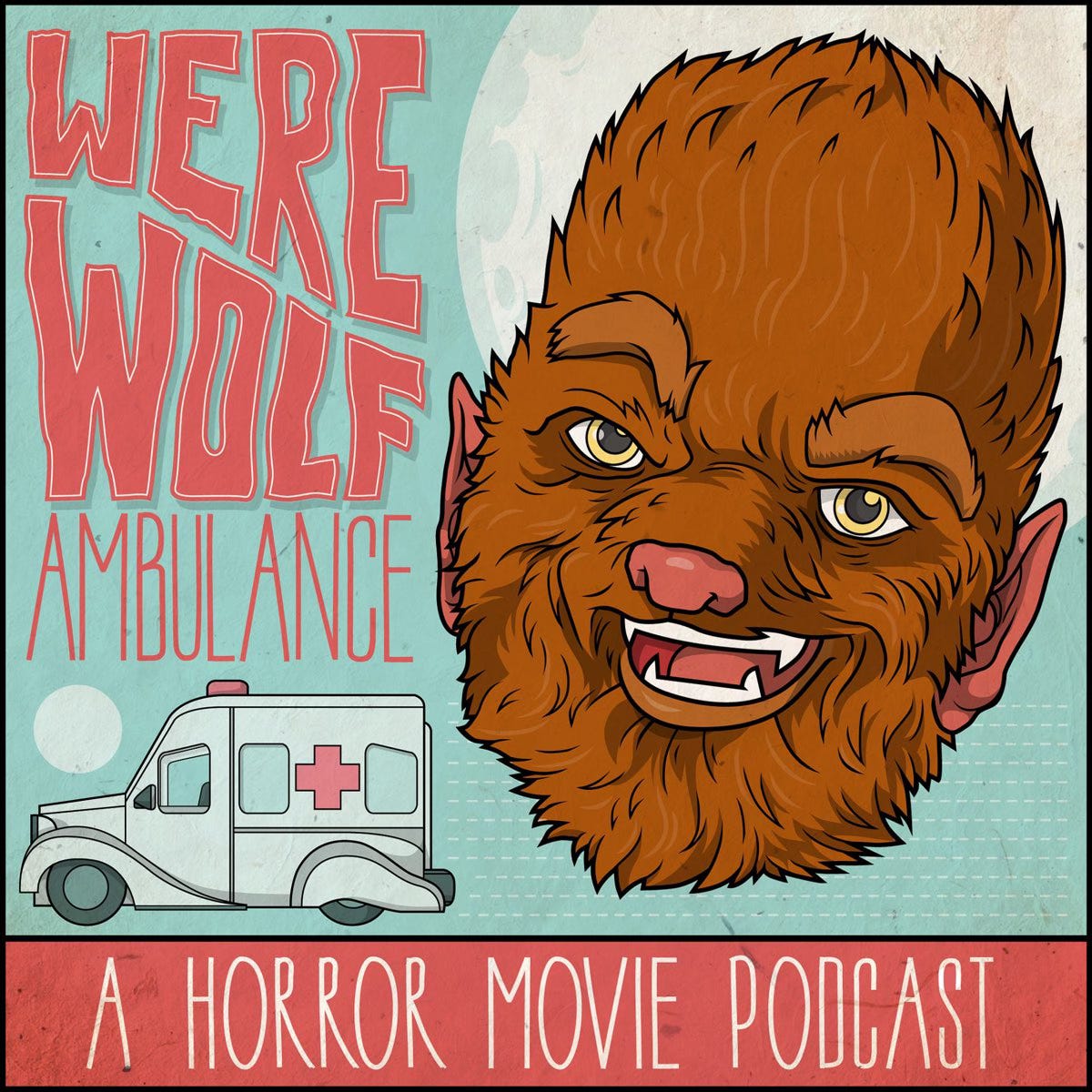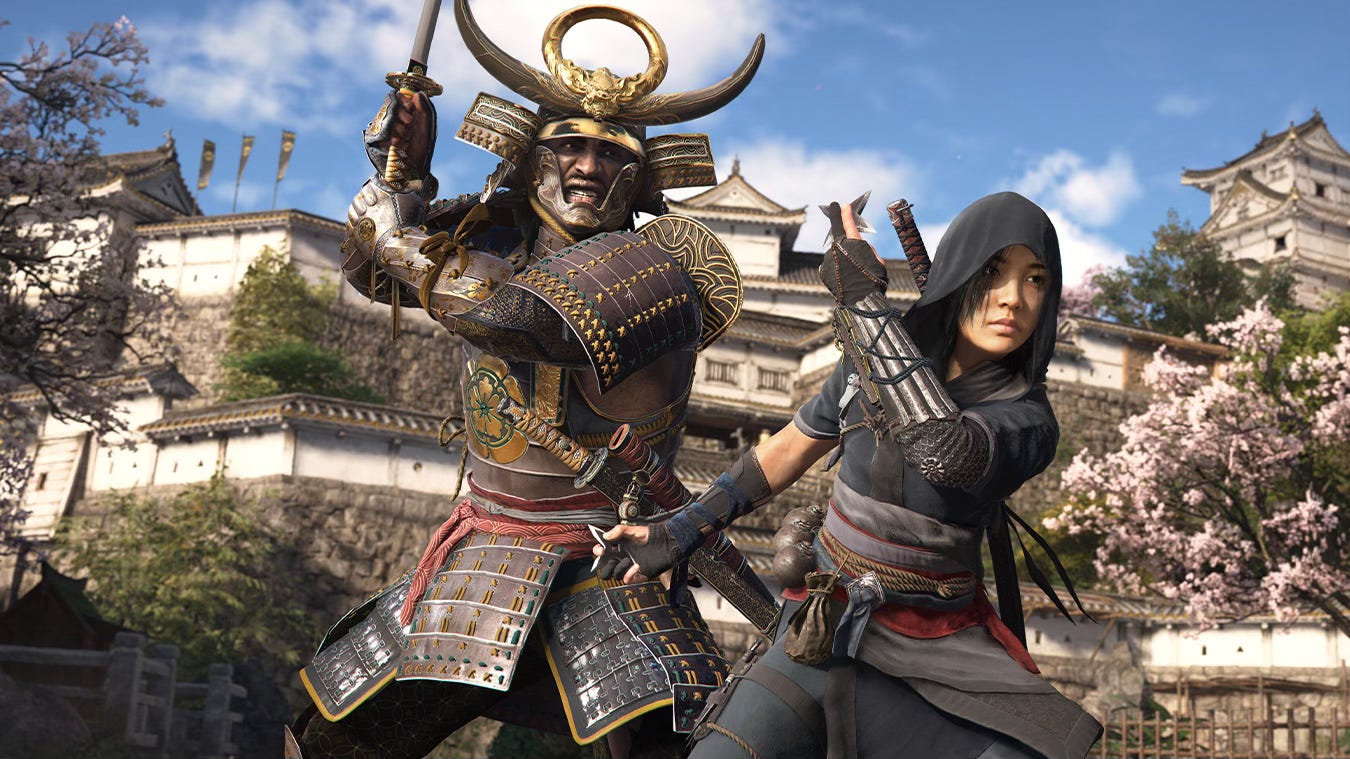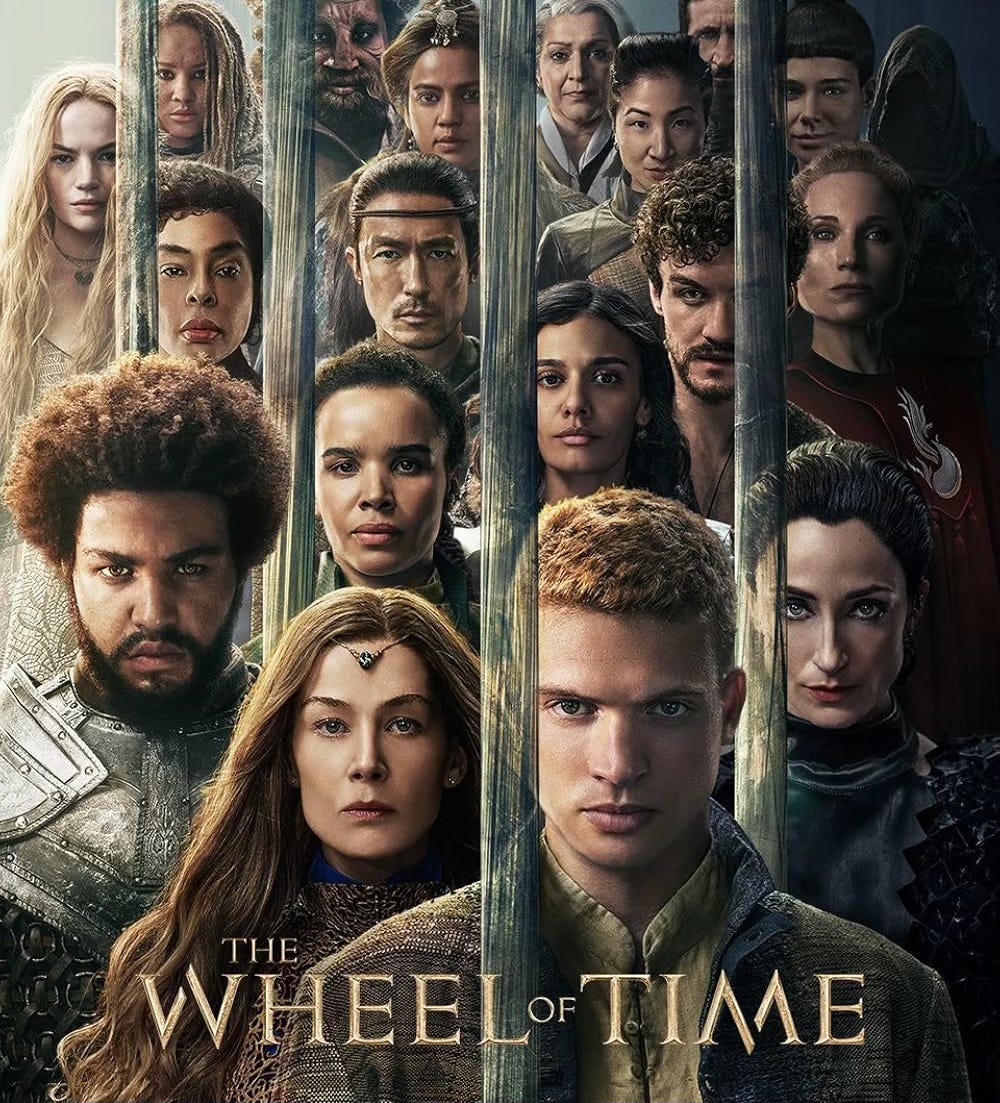On the Media Menu: Comfort Podcasts and Bandwagon Television
Getting away from politics with a hilarious horror ride on the Werewolf Ambulance, making a killing in Assassin's Creed, and taking a spin on The Wheel of Time
Back in the days that now seem like ancient history, I listened to a ton of political podcasts. I can’t even name most of them anymore but the full slate of Pod Save America headed the pack. As a product of journalism school who caught the news junkie bug as a tween, those podcasts slotted right into my daily firehose of news and commentary.
Then, toward the end of Trump’s first term — never has typing the word “first” hurt so much — and the debut of covid, I started dropping them from my rotation. Slowly at first, leaving the more obscure ones behind then finally ditching even the Pod Save crew.
I’d come to realize I needed to preserve what little sanity I was maintaining. Those podcasts weren’t informing me, they were reinforcing me. There’s nothing wrong with that in general; it can be a powerful thing to find media that shares your point of view, especially if you live in sea of people who don’t. I didn’t outgrow them, I just didn’t need them.
Of course, I still needed something to pump into my ears while walking the dog, cooking dinner, or cleaning the house. I couldn’t just muse on my own thoughts, I’m not a savage. I gravitated to entertainment podcasts, mostly movies, including some of the big ones: Blank Check with Griffin and David, How Did This Get Made, and Las Culturistas. I love all those and more, especially Blank Check, which is the type of film nerd bullshit session I would have killed for when I was a teenager pillaging the shelves of my local video store.
But the one I want to highlight here is a not-as-famous yet still popular among those in the know “horror movie comedy podcast,” Werewolf Ambulance. Every Monday, hosts Katie and Allen shoot the shit about that week’s feature, sometimes a good one (say Maxxine or Midsommer) and often a very cheesy one (Blood Diner or Shocker). Regardless of the movie, it’s always a charming (not cloying) recap of the highs and lows, filled with Allen’s hearty belly laughs and Katie’s Pittsburgh-native, to-the-point satirical observations.
Truly, I’ve learned an amazing amount about Pittsburgh. I may have to start saying “yinz” instead of “y’all.”
As you’d imagine for a podcast that’s been going for ten years, there are plenty of running jokes. My favorite is Katie’s “titty bell” that rings when, well, I don’t think have to explain that joke or why it’s a horror movie trope. I assume you’ve seen gratuitous boobs in a Friday the 13th movie at some point. But the running jokes are always welcoming, no matter where you start in the back catalog.
Probably the best thing about Werewolf Ambulance, aside from the simple joy of a Gen X guy and Millennial gal having one of the world’s healthiest friendships, is that you don’t have to watch the movies — you don’t even have to like them. I’m a horror movie fan and child of the video store era, so I’ve seen all the 80s and 90s stuff they cover but I’m honestly not bothering to watch, say, Leprechaun Returns. Katie and Allen watch it so I don’t have to and they make me laugh when they do.
I do want to add that they recently took a two week break due to the loss of a close friend. Katie’s brief announcement of that made me realize how much joy I’d been getting from them every week and I wanted to put the word out about their podcast. It’s a hard fucking world these days and it helps to have something that acknowledges that while still finding the fun and pleasure we can share with our friends and loved ones. Am I being a little corny? Sure. I don’t care. We gotta find the good where we can.
Gaming: Big in Japan
For months before Assassin’s Creed: Shadows released, I told myself I’m not buying this game. I’d enjoyed both previous games, the ancient Greece-set Odyssey and the Vikings-invade-England Valhalla, each of which sucked up days worth of my time with their massive open-world maps packed with quests, challenges, assassinations (obviously), sprawling RPG skill trees, and more storylines than an 80s soap opera. These games are a major time investment I shouldn’t take on.
Naturally, I ended up buying it.
Shadows purports to give fans what they’ve always desired from series that’s basically about being a ninja in ancient Europe: a historical Japanese setting. And it delivers. Shadows is a gorgeous game (I’m playing the standard PlayStation 5 version), featuring incredible detail and art design, along with a weather system that changes the seasons as you play. Most games have distinct “biomes” in their maps: go north to find the snowy region, go south to find the tropics, etc. In Shadows, the entire map moves through winter, spring, summer, and fall — and it has an impact, as moving through snow is slower and makes more noise (a big deal for a silence-seeking assassin).
That said, the map is ungodly big — if you don’t use fast travel you’ll spend the rest of your life trying to uncover the terrain on foot — and the plot is overstuffed with secret societies and fetch quests and a village-building minigame and all sorts of whatnot designed to keep you playing and, Ubisoft hopes, spending money on microtransactions.
I’m not saying how many hours I’ve put into it, just assume an embarrassing number. I’m enjoying the basic gameplay loop, which is basically sneak around castles and camps, staying in the shadows, and murdering absolutely everyone with sneak attacks. I don’t generally enjoy stealth games but Assassin’s Creed actually does it for me, probably because it’s not an instant fail if your stealth isn’t perfect.
Given that there is a large population of gamers devoted to being the absolute worst people on the planet, Assassin’s Creed has instigated “controversy” that was lamentably predictable — the game dares to have a black person in it. That alone is generally enough to piss off that subset of gamers but in this case, the racist backlash was stronger because the black character is a samurai. He’s based on an actual historical person but that never matters to racist people who want “historical accuracy” in videogames, of all media.
If you have some time to kill and want to explore 1500s feudal-era Japan — and maybe assassinating a Portuguese coloniser or two — all in glorious graphic detail (seriously, play this on a big HDR screen), check it out. Just set aside some time in you calendar from now until fall.
Television: On the Bandwagon
I’m finding television to be slim pickings these days, outside of a small handful of shows. Same as podcasts, I don’t deal with any political or news shows. I don’t watch cable news at all, which is more a remnant of my print journalist snobbery than anything, although Fox News, Newsmax, and their propagandistic ilk have definitely driven it all toward the bottom.
That said, I don’t always turn to TV for escapism. If I did, I would have missed the bandwagon for two of the most discussed and critically lauded series of the past couple of months, The Pitt and Adolescence.
I don’t have too much to add given that both shows have been dissected thoroughly across all media. There’s a little cottage industry of medical professionals reacting to The Pitt on YouTube, which was fun at first but now is overrun with johnny-come-latelies. My own medical experience is limited to a couple family members who work in the field and my public health work (not actually medical experience, more medical adjacent), but lord knows the show rings true. I’d strongly recommend you watch it if you have a Max subscription. It can be a tough hang — the realistic aftermath of a mass shooting in suitably gnarly — but well worth it because of strong characters, writing, and the “real time” approach.
Speaking of a tough hang, I’d also recommend Adolescence. At just four one-hour-ish episodes, it’s less of a time commitment. But it’s definitely an emotional commitment. Sure, the technical aspect of the show — each episode is a continuous one-shot, which leads to some jaw-dropping camera work — but it’s the story of a boy who kills a female classmate and how it affects his school, community, and family that makes it worth watching. I’ll admit I teared up at the end and I’m not an easy cry. It’s gutting but terribly relevant to our current environment.
Now for some actual escapism: The Wheel of Time.
For the uninitiated, The Wheel of Time is an absolutely massive fantasy series by Robert Jordan that, with 14 novels, dwarfs pretty much everything else in the genre. I’ve read them all and mostly enjoyed them, although there were three or so books toward the end that lots of fans refer to as “the slog.” Jordan died before finishing, leaving the last three books to fellow massive fantasy writer Brandon Sanderson for a satisfying finale.
I approached The Wheel of Time TV series with low expectations given the scope of what they were trying to adapt and knowing that no network, streaming or otherwise, would plan for 14 seasons mapped to each novel. And the first season is a bit rocky, hamstrung by budget and covid. Top billed Rosamund Pike set the acting bar high and the rest of the cast, many newcomers, raised their own levels accordingly. It was solid, if not fully inspired.
The second season went into full gear, expanding the cast of characters and the overall scope, while making a series of smart choices to rearrange the narrative, bringing aspects of the later books forward and simply excising material that’s not needed.
As a result, this show really moves. Because there are so many characters it rarely loses momentum. With an increase in budget and production experience, the show looks worlds better now than at the start and likely will keep improving. It doesn’t have the extravagant budget and luxe looks of its Prime Video sister show, The Rings of Power; on the other hand, it’s not boring and bogged down in lore like its sister show, The Rings of Power.
The Wheel of Time is well-known for its gender dynamics — it’s a world in which only women can wield magic and the rare man who can is driven mad by it. In the books, what may sound feminist and progressive often gets overwhelmed with some weirdly sexualized regression — lots of smoothing of skirts and a fixation on spanking punishments.
The show keeps the powerful women but manages to drop most of the weird gender stuff. It’s still pretty binary stuff, built around yin and yang, etc. But it goes out of its way to diversify the cast in ways that ruffled some fans’ feathers (some feathers are perpetually ruffled) but makes it more inviting to the world at large and seems truer to the story’s millennia-long in-world history.
Next on the Menu: Stephen Graham Jones, whose terrific novels (The Only Good Indians, and more) explore horror through a Native American lens, has a new novel, The Buffalo Hunter Hunter that I’m dying to get into.







